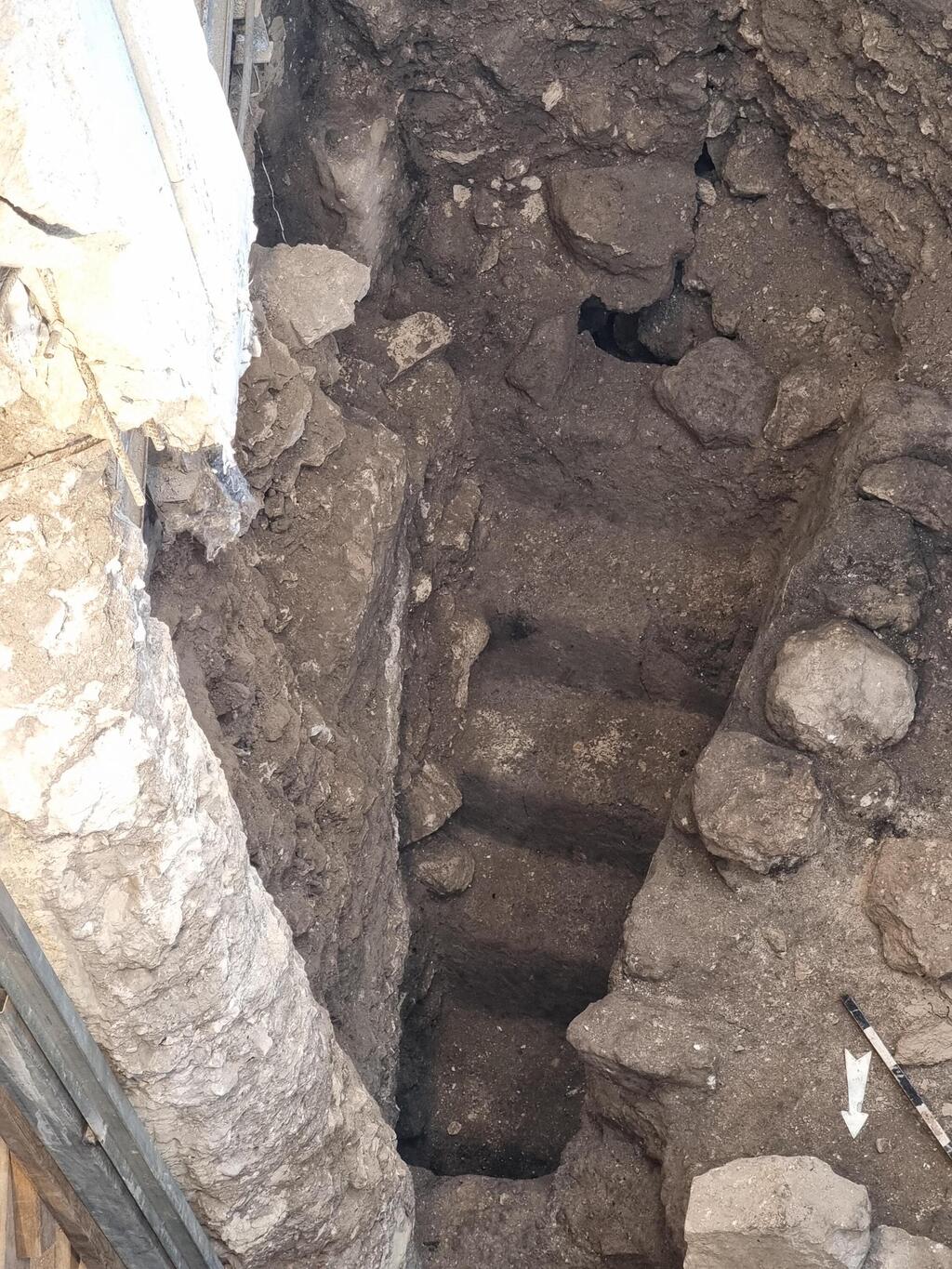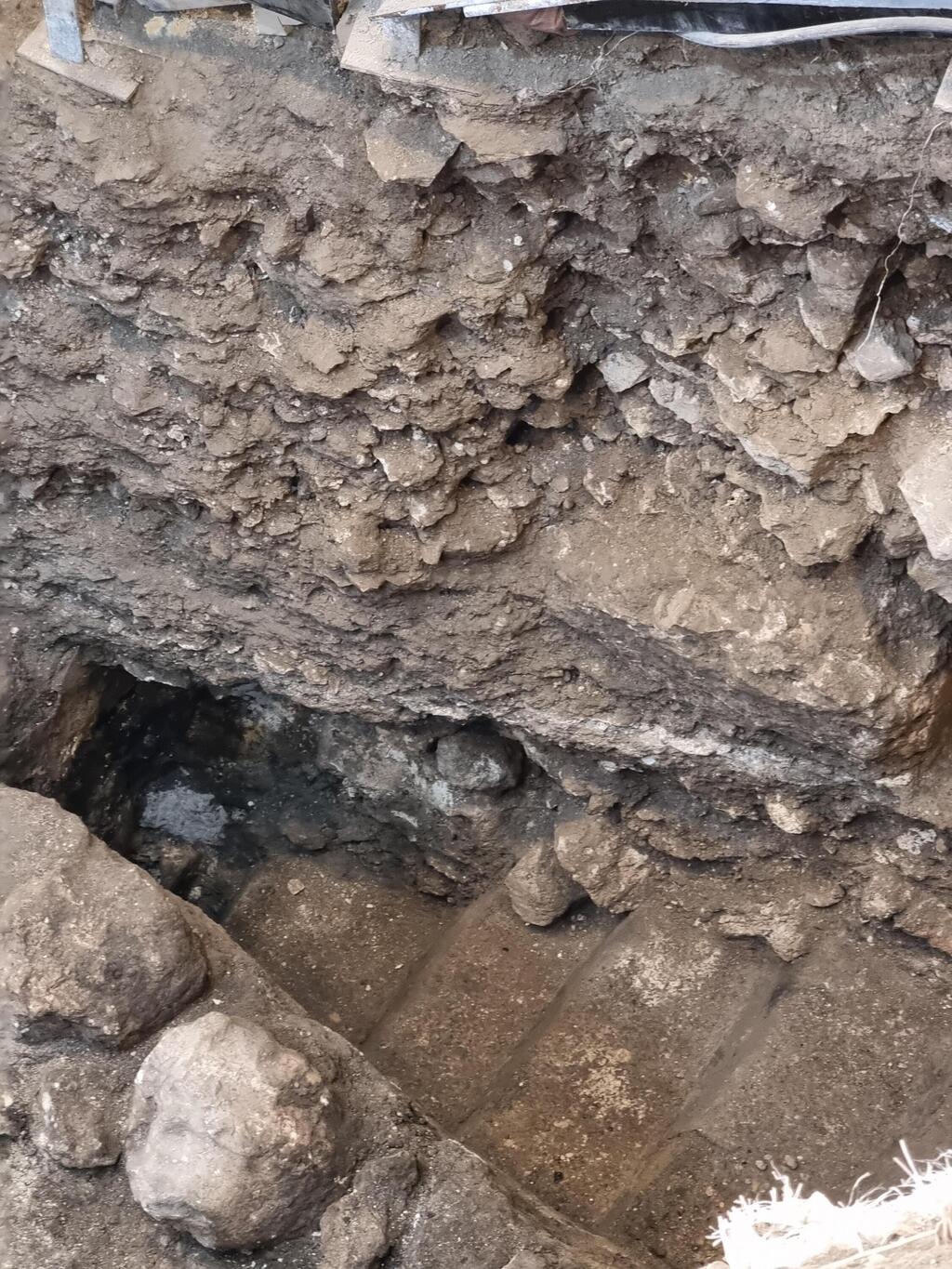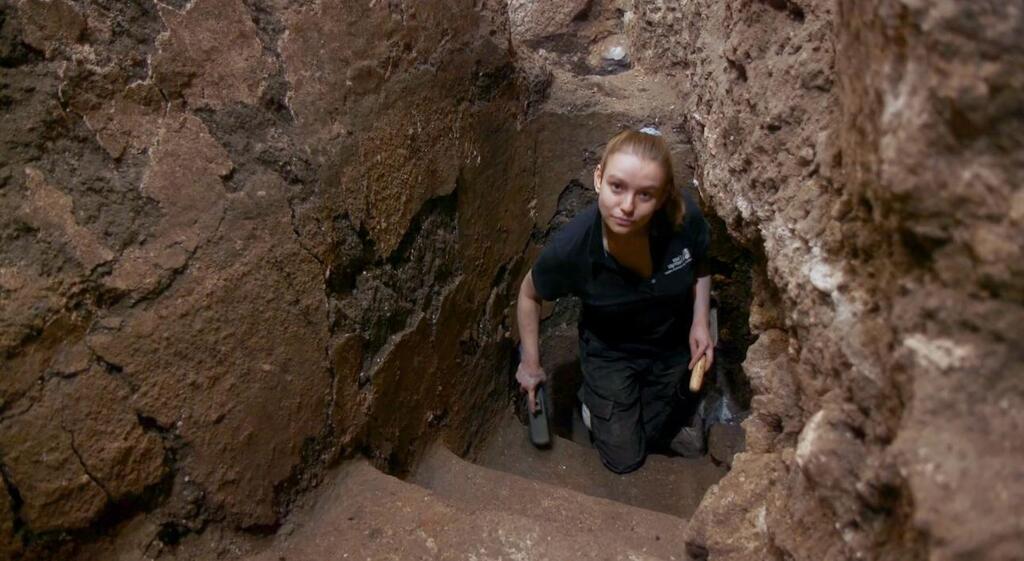Getting your Trinity Audio player ready...
A plastered mikveh (Jewish ritual bath), dated to the Second Temple period, was recently uncovered during excavations near the ancient drainage channel in the City of David, approximately 60 meters south of the Temple Mount in Jerusalem.
"The discovery of this small mikveh, seemingly for private use, provides further evidence that this area of the city housed affluent Jewish residents. A private mikveh was a luxury not everyone could afford," archaeologists Shlomo Greenberg, Riki Zlot Har-Tov and Peller Heber, who led the excavation on behalf of the Israel Antiquities Authority, said in a statement on Thursday.
The bath was found adjacent to what was the central drainage channel at the time, which primarily carried rainwater and has been mostly uncovered.
The City of David and the Israel Antiquities Authority noted that the ritual bath offers a rare glimpse into the daily lives of Jerusalem's residents on the eve of the Second Temple's destruction.
The bath, about two meters deep, featured five steps and was discovered beneath the remains of a house, alongside evidence of floors and debris that collapsed into it during the destruction. Stone vessels, characteristic of the Jewish population and fragments of pottery dating to the early Roman period were also found within.
"This mikveh is particularly exciting because it was discovered intact and is the second to be unearthed so far during excavations of the stepped street near the drainage channel in the City of David," the researchers said.
Get the Ynetnews app on your smartphone: Google Play: https://bit.ly/4eJ37pE | Apple App Store: https://bit.ly/3ZL7iNv
"Its proximity to the Temple highlights the significance Jerusalem's residents at the time attributed to purity laws, as described in the scriptures.”




